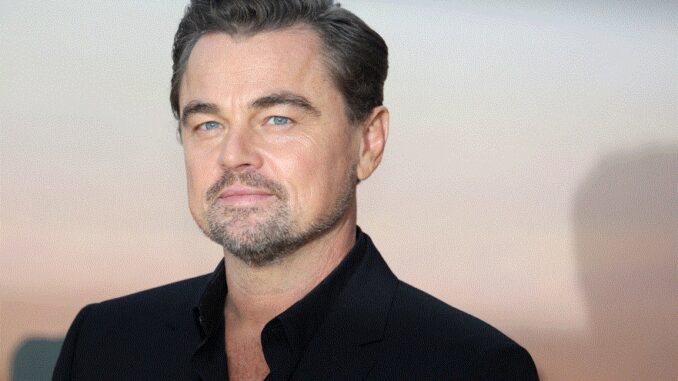
The Unfunny Comedy: Leonardo DiCaprio's Battle as Timely Political Satire
Leonardo DiCaprio is no stranger to dramatic roles, having embodied protagonists battling everything from the wilderness to the depths of human depravity. Yet, when he describes the ongoing climate crisis, the "one battle after another," as a "timely political satire," he's not speaking from the script of a Hollywood blockbuster. He's speaking as an environmental activist, a UN Messenger of Peace, and a horrified observer of a real-world drama that, paradoxically, mirrors the most biting and absurd of fictional satires. His insight isn't a cynical lament; it's a poignant, almost desperate, indictment of a world that seems determined to ignore its own impending catastrophe, making the unfunny reality a chillingly accurate piece of political theatre.
The "one battle after another" that DiCaprio references is a relentless, global onslaught. It's the annual choreography of wildfires scorching continents, the creeping, inexorable rise of sea levels swallowing coastlines, the unprecedented storms that churn with a new, terrifying intensity, and the silent, accelerating extinction of species. These are not isolated incidents but interconnected symptoms of a planet in distress, each new headline a fresh wound. For someone like DiCaprio, who has championed environmental causes for decades, this litany of ecological collapse isn't merely news; it's a personal crusade, a perpetual state of alarm where the stakes are life itself. He sees the tangible degradation, the scientific consensus, and the direct link between human activity and planetary suffering.
The genius, and the tragedy, of his "political satire" label lies in its acute observation of humanity's response to this existential threat. Satire, at its core, uses irony, exaggeration, and ridicule to expose folly and vice. What could be more satirical than the world's most powerful nations convening at climate summits, making grand pronouncements, only to frequently fall short of their commitments? Or the spectacle of fossil fuel industries spending vast sums on lobbying and misinformation campaigns, while simultaneously sponsoring "green" initiatives that are mere drops in the ocean? The irony is scalding: the very systems designed to protect and advance humanity are often those most complicit in its undoing, prioritizing short-term economic gains and political expediency over the long-term survival of the species.
This is where the "timely" aspect resonates so profoundly. We are living in an era of unprecedented scientific understanding, where the data on climate change is overwhelming and unequivocal. Yet, simultaneously, we inhabit a landscape of rampant misinformation, performative activism, and a political apparatus seemingly paralyzed by division and special interests. It's a stage where scientists scream warnings into a void, while politicians quibble over semantics and corporate titans continue to drill. DiCaprio’s own film, "Don't Look Up," served as a thinly veiled, literal interpretation of this real-world satire – a comet heading for Earth, a scientific community frantic with urgency, and a political leadership and public consumed by triviality, self-interest, and celebrity gossip. The film was cathartic because it mirrored a horrifying truth: the absurdity of our collective inaction in the face of certain doom.
DiCaprio, with his unique platform, sees the tragicomic disconnect perhaps more clearly than most. He navigates a world of high-level diplomacy and celebrity, a world often insulated from the immediate consequences of climate change, yet he consistently uses his voice to bridge that gap. His call-out of the situation as "political satire" isn't a flippant remark; it's a frustrated, almost bewildered observation that the absurdity of our inaction has reached a point where it defies logic, becoming a dark, unfunny joke playing out on a global stage. The punchline, however, is not laughter, but potential extinction.
In essence, DiCaprio's insight crystallizes the profound contradiction of our age: humanity's incredible capacity for innovation and problem-solving juxtaposed against a shocking inability to address the most critical issue it faces. The "one battle after another" is the relentless march of climate devastation, while the "timely political satire" is the global, often farcical, response to it. His words serve as a stark reminder that this isn't merely a political problem to be debated, but an existential crisis demanding immediate, unified action. If we are indeed living in a political satire, the ending of this particular play remains unwritten, and whether it concludes with a tragic punchline or a last-minute, triumphant reversal, depends entirely on whether we finally get the joke.
